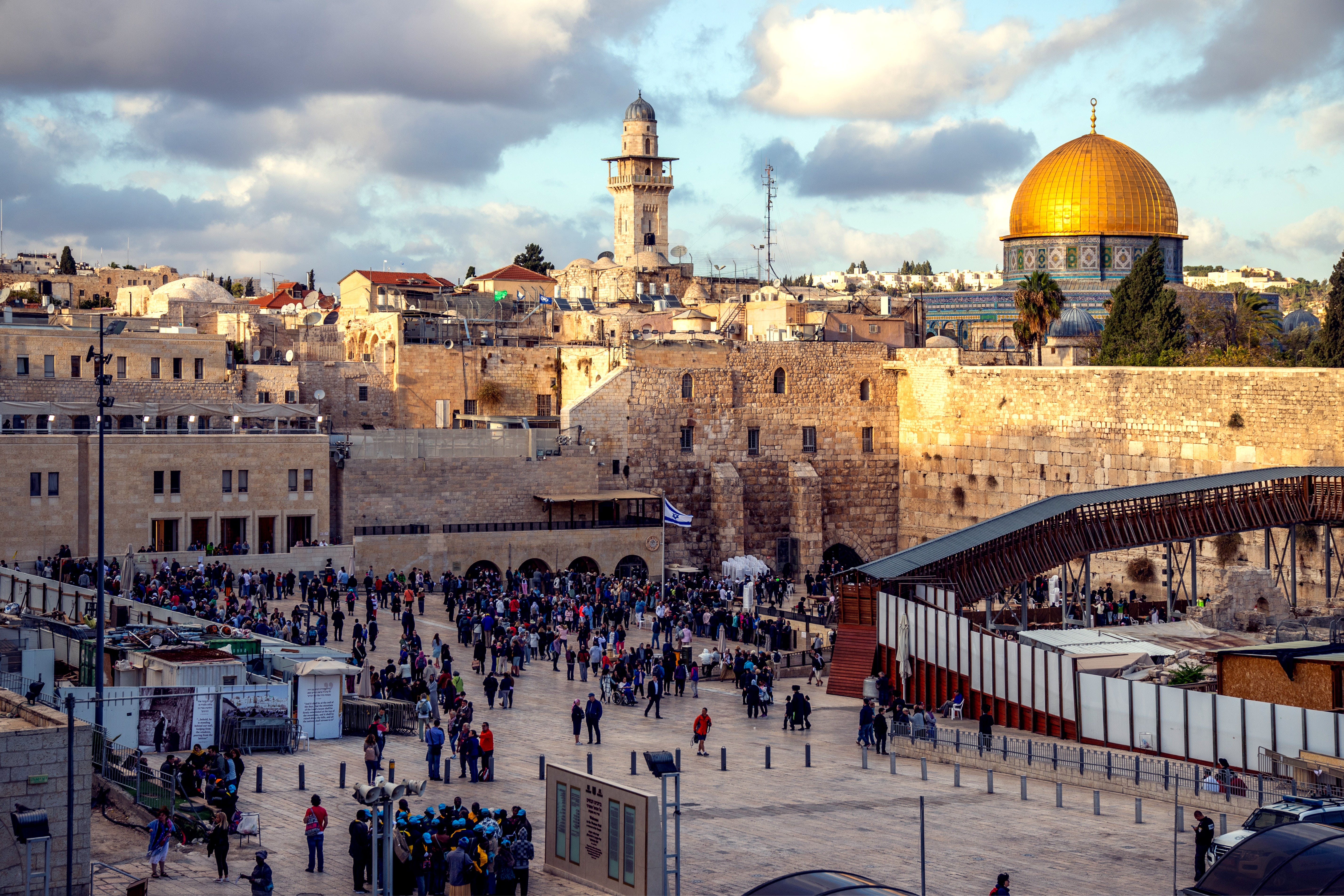The central message of Baha’u’llah’s revelation is unity. This is expressed throughout His writings and clearly stated to be the purpose of His religion. “He Who is your Lord, the All-Merciful, cherisheth in His heart the desire of beholding the entire human race as one soul and one body”. He counsels us to “exert yourselves that ye may attain this transcendent and most sublime station, the station that can insure the protection and security of all mankind. This goal excelleth every other goal, and this aspiration is the monarch of all aspirations.” ‘Abdu’l-Baha’ further stated that “in every Dispensation, the light of Divine Guidance has been focused upon one central theme…In this wondrous Revelation, this glorious century, the foundation of the Faith of God, and the distinguishing feature of His Law, is the consciousness of the oneness of mankind.”
Baha’u’llah also taught us however that unity was a building that rested on certain foundations. Among those foundations is the conception of human beings that we discussed in the previous essay. Not only did Baha’u’llah present it to us as the reality of who we are, but as also being critical to unity. If humans think of themselves as animals, engaged in a ceaseless quest for supremacy over others, war will constantly be a major threat to the stability of our world. Indeed, it can truly be said that we will not survive as a species with that conception, because inevitably those forces will lead to a chain of actions that will destroy our planet. History has shown that human societies are successful when they are based on cooperation and reciprocity, on a devotion to abstract moral and ethical principles, on rationality and commitment to truth- in short- when they are based on the things that make us distinctly human. Therefore, when we talk about how to build world unity, part of that must involve a commitment to high ideals and principles that unite people across the various natural divisions that exist.
This bring us to a personal spiritual and moral quality that is featured very strongly in the writings of Baha’u’llah- the quality of detachment. Detachment sounds like a cold word. We refer to people as “emotionally detached” and think of them as aloof and somehow disengaged from the suffering of others. But Baha’u’llah often refers to detachment with another spiritual and moral quality together with it- the quality of love. Love and detachment.
“It behoveth…the loved ones of God to be forbearing towards their fellow-men, and to be so sanctified and detached from all things, and to evince such sincerity and fairness, that all the peoples of the earth may recognize them as the trustees of God amongst men…Blessed are they who, on the wings of certitude, have flown in the heavens which the Pen of thy Lord, the All-Merciful, hath spread.”
Love and detachment are magnificent qualities in a person, particularly when complexed together. Think of the people you admire. The people we admire tend to be people who are fair-minded, just, selfless, wise, calm, and serve as an inspiration and guidance for others. Now think what is happening in the heart of such a person. Internally, they have made a decision to prioritize abstract moral and spiritual principles- equality, justice, compassion, humility, and commitment to truth- over the lower aspects of themselves- attachment to ego or their animalistic impulses. It’s their commitment internally to those principles that makes them who they are. In prioritizing those qualities in their person, they are expressing detachment from the lower aspects of their nature, and making themselves truly and distinctively human.
Baha’u’llah and ‘Abdu’l-Baha describe that humans have two aspects to their natures- a material element that we share with animals, and a spiritual element which is distinctly human and is the seat of our rationality and moral values The purpose of life is to grow such that the spiritual aspects of our nature complete dominate the lower aspects of our nature. It is not that we don’t participate and even enjoy our material life- enjoy our food or other material pleasures- but we learn to prioritize them to a much lesser degree than we do the spiritual aspects of ourselves. The process of growth is the process of detaching ourselves from our material inclinations and increasingly living the life of the spirit.
Rather than characterizing that life as one of continual self abnegation and deprivation, Baha’u’llah re-frames it as one of joyous love. In comparison, attachment to ourselves is a form of a prison-“Barter not the garden of eternal delight for the dust-heap of a mortal world. Up from thy prison ascend unto the glorious meads above, and from thy mortal cage wing thy flight unto the paradise of the Placeless”.
In Baha’u’llah’s Tablet to the Pope, Baha’u’llah outlined for the Pope how detachment from worldly things allowed the pearl inside human beings to manifest itself, and He encourages the Pope to put behind him the opulence and wealth associated with his position-
Consider a pearl which shineth by virtue of its inherent nature. If it be covered with silk, its luster and beauty will be concealed. Likewise, man’s distinction lieth in the excellence of his conduct and in the pursuit of that which beseemeth his station, not in childish play and pastimes. Know that thy true adornment consisteth in the love of God and in thy detachment from all save Him, and not in the luxuries thou dost possess. Abandon them unto those who seek after them and turn unto God, He Who causeth the rivers to flow.
In another passage. Baha’u’llah compares the essence of us to a very beautiful sword that is concealed within the sheath of our material self-
O My Servant! Thou art even as a finely tempered sword concealed in the darkness of its sheath and its value hidden from the artificer’s knowledge. Wherefore come forth from the sheath of self and desire that thy worth may be made resplendent and manifest unto all the world.
In the Writings of Baha’u’llah, the fuel that powers our transition from a person who is materially focused to one who is spiritual is love.
Whither can a lover go but to the land of his beloved? and what seeker findeth rest away from his heart’s desire? To the true lover reunion is life, and separation is death. His breast is void of patience and his heart hath no peace. A myriad lives he would forsake to hasten to the abode of his beloved.
In many passages, He clothes the concept of detachment in the robe of love- as in this passage, where Baha’u’llah outlines spiritual steps we can take to find our Beloved.
“Set out, then, from thine abode, take thou seven steps upon the earth, and with each step complete a stage of the journey. With the first, enter the ocean of search and seek God, thy Lord, with thine inmost heart and soul. With the second, enter the ocean of love and make mention of God, thy Lord, in the transports of thy longing and the ecstasies of thy rapture. With the third, tread the paths of detachment; that is, sever thyself from thine idle fancies and walk in the ways of thy Lord. With the fourth, enter the fathomless depths of oneness and the billowing seas of eternity. Cover thy face in the dust before the Lord of Lords, and sanctify thy self and thy spirit from all departure and return, that thine inmost heart may be freed from all things in the kingdoms of creation…”
In the end, we become so attracted by spiritual things that we judge material things to have only value to the extent that they support our true growth and development. In Baha’u’llah’s Tablet to Napoleon, He counsels him that his efforts to conquer land and amass armies were ultimately a worthless endeavor, efforts that someone with true understanding would not engage in-
Rejoicest thou in that thou rulest a span of earth, when the whole world, in the estimation of the people of Bahá, is worth as much as the black in the eye of a dead ant? Abandon it unto such as have set their affections upon it, and turn thou unto Him Who is the Desire of the world. Whither are gone the proud and their palaces? Gaze thou into their tombs, that thou mayest profit by this example, inasmuch as We made it a lesson unto every beholder. Were the breezes of Revelation to seize thee, thou wouldst flee the world, and turn unto the Kingdom, and wouldst expend all thou possessest, that thou mayest draw nigh unto this sublime Vision.
In another Tablet addressed to the Kings of the earth generally, Baha’u’llah states- “The treasures ye have laid up have drawn you far away from your ultimate objective. This ill beseemeth you, could ye but understand it.”
The “ultimate objective” for humans is to sever ourselves from our attachment to material things and even our own ego, becoming fully clothed in the garment of spiritual and moral qualities. Baha’u’llah describes the state that we should seek to reach as being “detached from all save God”.
This station is that of dying to the self and living in God, of being poor in self and rich in the Desired One. Poverty, as here referred to, signifieth being poor in that which pertaineth to the world of creation and rich in what belongeth to the realms of God. For when the true lover and devoted friend reacheth the presence of the Beloved, the radiant beauty of the Loved One and the fire of the lover’s heart will kindle a blaze and burn away all veils and wrappings…Whoso hath attained this station is sanctified from all that pertaineth to the world.
Why are these qualities so important for unity? Because virtually all conflict in the history of the human race has for its genesis an attachment wealth, land, power, or other forms of material or psychological attachment. Conversely, social institutions that have brought peace- the Constitution of the United States, the United Nations, various other forms of cooperative agreements between nations- are founded on abstract moral and spiritual principles. To the degree that we turn towards or away from those values is the degree to which our civilization will advance or retreat. The world desperately needs people whose sole concern is to see the qualities of God- justice, equity, kindness, mercy, compassion- manifested in our world, and who are not “attached” to their own personal gain. Not only do we need these people in our societies, we need them as our leaders!
In Baha’u’llah’s Tablet to the Kings, he outlines how they should act-
Be vigilant, that ye may not do injustice to anyone, be it to the extent of a grain of mustard seed. Tread ye the path of justice, for this, verily, is the straight path. Compose your differences, and reduce your armaments, that the burden of your expenditures may be lightened, and that your minds and hearts may be tranquilized. Heal the dissensions that divide you, and ye will no longer be in need of any armaments except what the protection of your cities and territories demandeth…Beware not to deal unjustly with anyone that appealeth to you, and entereth beneath your shadow. Walk ye in the fear of God, and be ye of them that lead a godly life. Rest not on your power, your armies, and treasures. Put your whole trust and confidence in God, Who hath created you, and seek ye His help in all your affairs.
Some people might not make the connection between the abstract qualities of justice, equality, and other virtues we value in our modern civilization and “being detached from all save God” but Baha’u’llah makes that connection apparent. In a sense, He has defined our closeness to God as being a state characterized by a deep commitment to abstract moral and spiritual values, one that overwhelms every other desire in life. It’s not a state where we retreat from the world, but one in which we are no longer attached to its material aspects that our greatest joy is expressing spiritual qualities in our lives and interactions with others.
Once a person has committed to spiritual and moral qualities, Baha’u’llah tells us we need to then act in the world. “Thy day of service is now come”, He told His followers.
“Now is the moment in which to cleanse thyself with the waters of detachment that have flowed out from the Supreme Pen, and to ponder, wholly for the sake of God, those things which, time and again, have been sent down or manifested, and then to strive, as much as lies in thee, to quench, through the power of wisdom and the force of thy utterance, the fire of enmity and hatred which smoulders in the hearts of the peoples of the world. The Divine Messengers have been sent down, and their Books were revealed, for the purpose of promoting the knowledge of God, and of furthering unity and fellowship amongst men.”
“Thou must show forth that which will ensure the peace and the well-being of the miserable and the down-trodden. Gird up the loins of thine endeavor, that perchance thou mayest release the captive from his chains, and enable him to attain unto true liberty”.
He further states that “If thine eyes be turned towards mercy, forsake the things that profit thee and cleave unto that which will profit mankind. And if thine eyes be turned towards justice, choose thou for thy neighbor that which thou choosest for thyself”.
Detachment and love are two inner qualities that we can strive for as human beings, and then manifest in all our interactions with others. Baha’u’llah’s revelation is thus different than any other social movement out there in that it first seeks to transform human beings themselves, making them better fit to live in a world of peace and justice. Shoghi Effendi, who led the Baha’i Faith for 36 years, summarized this whole concept beautifully-
The Bahá’í Faith, like all other Divine religions, is thus fundamentally mystic in character. Its chief goal is the development of the individual and society, through the acquisition of spiritual virtues and powers. It is the soul of man that has first to be fed….Laws and institutions, as viewed by Bahá’u’lláh, can become really effective only when our inner spiritual life has been perfected and transformed. Otherwise religion will degenerate into a mere organization, and become a dead thing.


